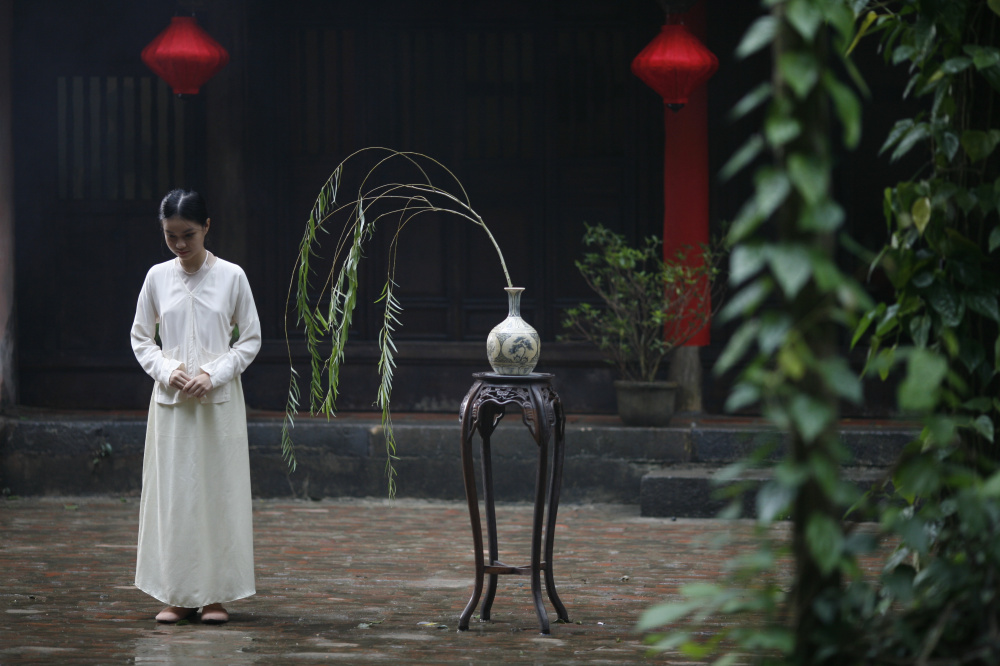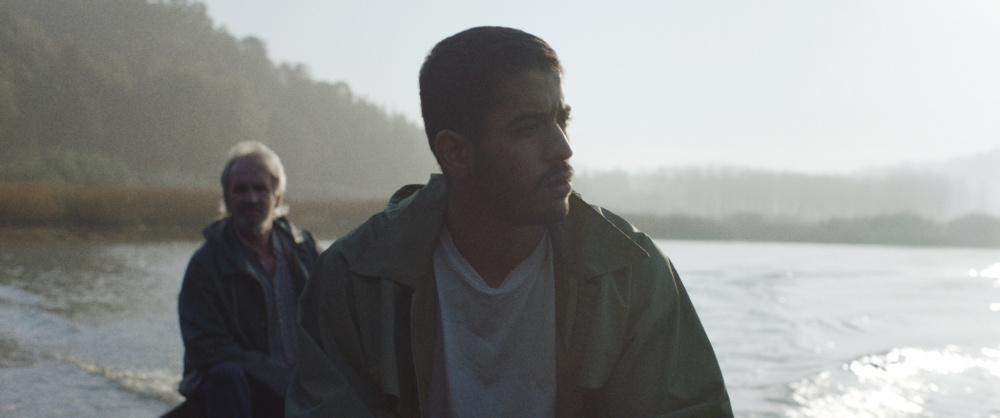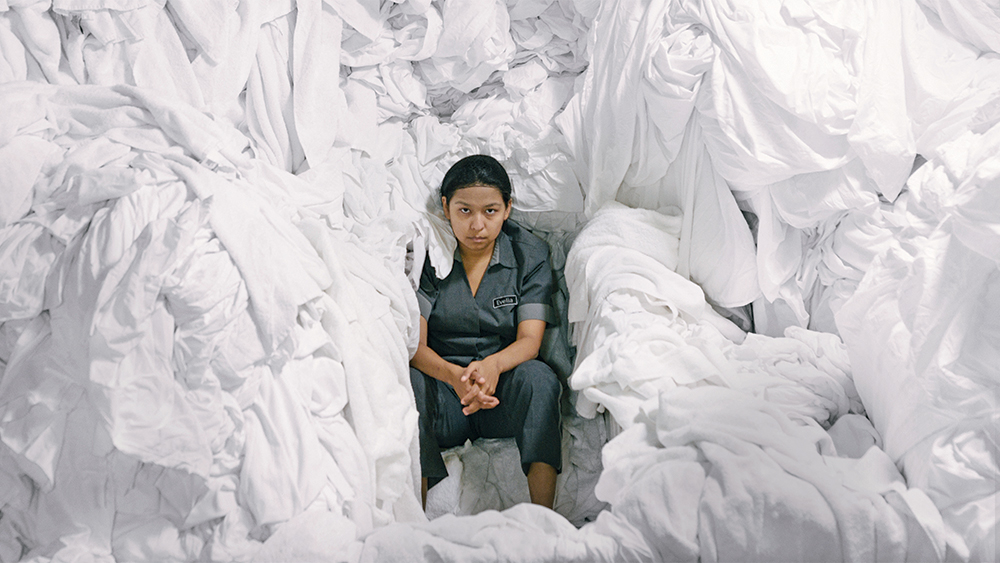San Sebastian: ‘The Chambermaid,’ ‘Core of the World,’ ‘Journey’ Make New Directors Cut
By John Hopewell
LOS ANGELES (Variety.com) – MADRID — Lila Avilés’ “The Chambermaid,” Natalia Meschaninova’s “Core of the World” and Celia Rico’s “Journey To a Mother’s Room” have been selected for San Sebastián’s Kutxabank New Directors’ competition, which has consolidated over the years as one of the festival’s most exciting sections.
Also one of Europe’s strongest new talent showcases, offering a €50,000 ($58,434) cash prize for the winning film, the ’ showcase is the biggest sidebar at the highest-profile festival in the Spanish-speaking world, a constant fount of firm fest favorites and select titles which break out to world sales, as well as a snap-shot of major contemporary trends in world cinema.
This year, the selection runs a broad gamut. There is a brace of female directors who bring a woman’s sensibility to films, tracing growing sorority, (“Journey To a Mother’s Room) the contemporary inhibition of masculinity (“Core of the World”) or the plight of women in a patriarchal society (“The Chambermaid,” “The Third Wife”).
Other New Directors contenders, however, discover the near-cinematographic in contemporary life, whether in the wilds of an outer city (“The Deer”), a war hero of Fidel Castro’s Angola and Nicaragua campaigns (“To War”); or a member of a small-time bank heist dynasty, recalling the anti-heroes of European film noir (“Notes for a Heist Film”). Yet others still note the dislocation of a fractured tensed disenfranchised society.
Co-produced by Los Angeles-based LA Panda and Axel Shelson at Bad Boy Billy Productions, actress-turned-director Avilés’ “The Chambermaid,” the big winner at December’s Ventana Sur Primer Corte, is also the only U.S. movie in the section, though a few titles are still to be selected. Also shown in rough cut at Los Cabos Festival, it is a grounded fiction film which treks after a chambermaid on her daily grind around Mexico City’s chicly wood-paneled Hotel Presidente Internacional. But it is also a story which many at Los Cabos and Ventana Sur found touching – of the search for identity of a person who seems invisible to some clients, is already a mother, but not yet her own person.
Marking the full emergence of a Russian female auteur, “Core of the World” won a few weeks back the Grand Prix at Russia’s Kinotavr Film Festival. Like last year’s well-received “Arrhythmia,” which Meschaninova co-wrote with its director Boris Khlebnikov, “Core” turns on the theme of male inhibition here with 20something animals vet Egor working at a training farmstead for hunting dogs, and in desperate need of a controlled environment with no complications after a violent past relationship with his mother.
Rico’s first feature, the Andalusian village-set “Journey To a Mother’s Room” traces the evolution of two women’s relationship, from mutually dependent mother and daughter to, after the daughter takes an au pair job in London, more healthily independent friends. Barcelona-based Amoros Producciones and Ibon Cormenzano’s Arcadia Motion Pictures lead produce, causing Rico, Andalusia-born but Barcelona-based, to often be cited as one of the talents on the rise of a young – and now sometimes women-lead – Catalan cinema.
In “Julia and the Fox,” directed by Argentina’s Inés María Barrionuevo whose LGBT debut “Atlántida” proved a milestone movie on the burgeoning film scene in Argentine second city Córdoba, a mother and daughter work through grief and loss at the death of the father, thanks to theater work and the emergence of a new father figure.
From a screenplay winner of a Spike Lee Film Production Fund award in 2014, “The Third Wife,” directed by the New York and Vietnam-based Ash Mayfair, turns on the pregnant third spouse, aged 14, of a 19th century lord of the manor, taking in same sex, unrequited and illicit love, sexual abuse and heartbreak in a tragic patriarchal society.
Directed and lensed by Argentina’s Francisco Marisé, and co-written and co-edited by San Sebastián best director winner Javier Rebollo (“Woman Without Piano”), “To War” is an affectionate creative doc portrait of battle-scarred Andrés Rodríguez Rodríguez, a Cuban combatant in Angola (1975-77) and Nicaragua (1983-87), still training for hand-to-hand combat, though in a placid grass field in Cuba, still faithful to Castro’s cause, still ready for action, though his war is over.
From Txintxua Films (“Amama”), “The Deer” weighs in as Basque auteur Koldo Almandoz’s follow-up to fiction-documentary essay “Ghost Ship,” a full-on narrative feature set among outsiders with a story, living on a big city’s outskirts.
The second feature from cult Spanish director León Siminiani (“Map”), “Notes for a Bank Heist,” another New Directors contender, is a portrait of a reputedly Robin Hood-style bank robber set against the background of Spain’s recession and the director’s admiration for film noir.
Other titles hew more to a more traditional, critical social realism. Swiss Hannes Baumgartner’s “Midnight Runner” recounts the true-life case of an elite marathon runner with a troubled family history and business ambitions who moonlights, literally, mugging young women at night.
“Neon Heart,” from Denmark National Film School alum Laurits Flensted-Jensen, expands on elements from his SXSW-screened short “Melon Rainbow” in a three-hander between a wannabe porno actress, a carer for two Down Syndrome men and a man planning an assault. It is billed as an discomforting, kaleidoscopic exploration of sexuality, desire and disability.
Highlighted in rough cut at last year’s inaugural Glocal in Progress, a showcase of films made in Europe but not in one of its most-spoken languages, Romanian Hadrián Marcu’s “A Decent Man” delivers a sense of the limited life perspectives in his contemporary homeland through the tale of a man who is about to have a child with his girlfriend while still carrying on with one of his work colleagues.
Set after Yugoslavia suppresses Kosovan autonomous institutions in 1990, Ismet Sijarina’s “Cold November” is a questioning study of conformity as a poor office worker hangs onto his job, working with Serbs, scorned by Serbs and Albanian Kosovans alike, in order to bring money to the table for his family.
“Jesus,” directed by Japan’s Hiroshi Okuyama, turns on a student, Yura, at a rural Christian high-school who begins to see apparitions of a mini-Christ while praying.
SAN SEBASTIAN 2018 KUTXABANK NEW DIRECTORS’ LINEUP
The first 13 titles:
“Notes for a Bank Heist,” (León Siminiani, Spain)
“The Chambermaid,” (Lila Avilés, Mexico, U.S.)
“Cold November,” (Ismet Sijarina, Kosovo, Albania, Macedonia)
“Core of the World,” (Natalia Meschaninova, Russia)
“A Decent Man,” (Hadrian Marcu, Romania)
“Jesus,” (Hiroshi Okuyama, Japan)
“Journey To a Mother’s Room,” (Celia Rico, Spain, France)
“Julia and the Fox,” (Inés María Barrionuevo. Argentina)
“Midnight Runner,” (Hannes Baumgartner, Switzerland)
”Neon Heart,” (Laurits Flensted-Jensen, Denmark)
“The Deer” (Koldo Almandoz, Spain)
“The Third Wife,” (Ash Mayfair, Vietnam)
“To War,” (Francisco Marisé, Argentina, Spain)
Pictured:
“The Chambermaid”
“The Third Wife”
“The Deer”
“Midnight Runner”




